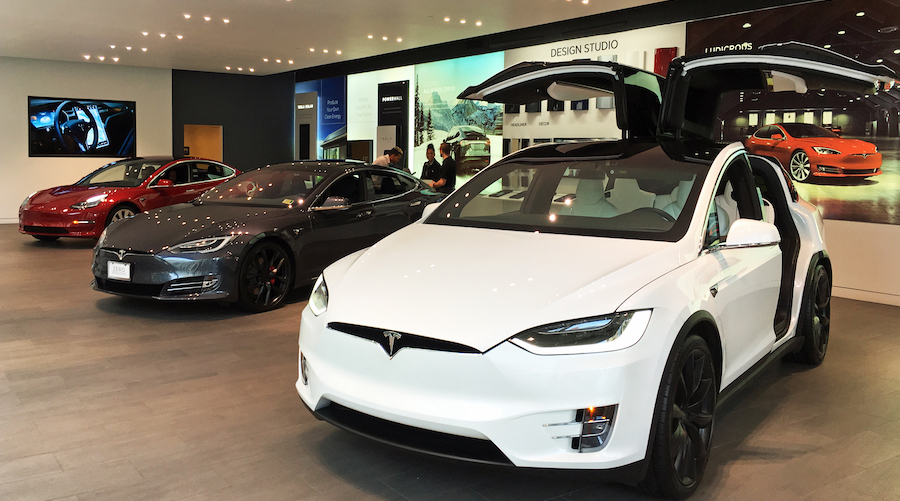There’s one metal worrying Tesla and EV battery suppliers

Battery producers and electric automakers, including Tesla Inc., are concerned over longer-term supplies of nickel, a key material in their supply chain that’s forecast to fall into deficit, according to an Australian miner that’s held recent talks with the sector.
The need for the high-purity material used in batteries, known as class-one nickel, is likely to outstrip supply within five years, fueled mainly by rising consumption in the EV industry, according to BloombergNEF.
It’s a concern shared by Tesla, according to Peter Bradford, chief executive officer of nickel producer Independence Group NL, who last week met with a member of the car producer’s battery metals supply chain team.
According to BloombergNEF, the need for the high-purity material used in batteries, known as class-one nickel, is likely to outstrip supply within five years
“They are getting ready to have the new factory in China, and are at full capacity in North America,’’ Bradford said. “They recognize the biggest risk from a strategic supply point of view is nickel.’’
There’s been a lack of sufficient investment in new mines for materials including nickel, a factor that could spur prices as battery sector demand builds, Tesla’s global supply manager of battery metals Sarah Maryssael, told a Washington meeting in May. Tesla didn’t immediately respond to a request for comment on its outlook for nickel and other metals.
Demand for nickel from lithium-ion batteries is forecast to surge about 16 times to 1.8 million tons of contained metal by 2030, BNEF said in a July report. Batteries will account for more than half of demand for class one nickel by that date, shifting a market that’s currently focused on stainless steel.
Perth-based Independence last year increased nickel output from its Nova mine in Western Australia by about a quarter and is spending as much as A$75 million ($51 million) on exploration in an effort to extend the asset’s life and find new deposits.
Nickel in London has jumped more than a third in 2019 and last month touched the highest in more than a year. Future battery demand will add further pressure on prices, according to Bradford, who is awaiting delivery this month of his own Tesla Model S.
“The dramatic price rise we’ve seen will pale into insignificance compared to the future,’’ Bradford said in the Friday phone interview.
Japan’s Sumitomo Metal Mining Co., said in June the nickel market faces a deficit of 51,000 tons in 2019, raising an earlier forecast. Last month, First Quantum Minerals Ltd. confirmed it’ll reopen the Ravensthorpe mine in Western Australia –- shuttered since 2017 — in the first quarter of 2020 amid the strength of interest from potential nickel and cobalt customers.
Western Areas Ltd. recently visited China’s Contemporary Amperex Technology Co. Ltd., a leading battery maker, and is winning interest from the EV sector for nickel supply contracts, the Perth-based producer said Monday in a presentation. Contracts with BHP Group and Tsingshan Holding Group Co. are scheduled to expire in January.
Meetings with companies in the EV supply chain in China and South Korea in the past month, including battery suppliers and producers of key raw materials and chemicals, had also underscored the industry’s concerns about supply, Bradford said.
“The big question everyone will be asking in a year’s time is where does the nickel come from to satisfy the demands for nickel in stainless steel, as well as the increasing demand for nickel into electric vehicle batteries?’’ he said.
(By David Stringer)
{{ commodity.name }}
{{ post.title }}
{{ post.date }}




Comments